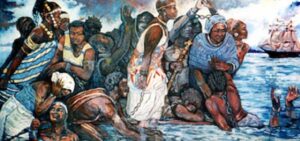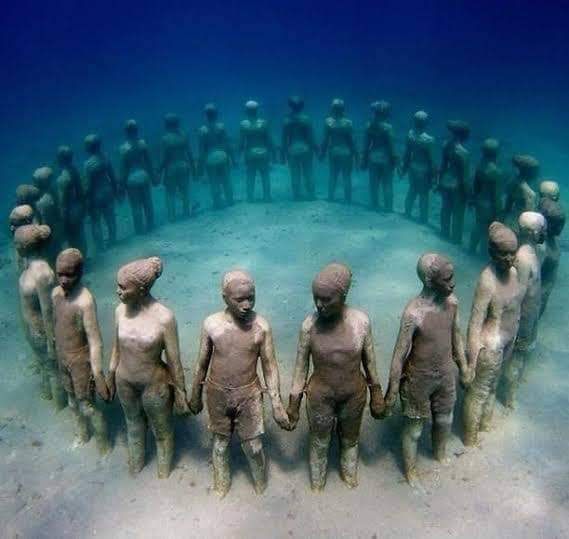The Courageous Stand of 75 Igbo Captives Who Chose Freedom Over Slavery in 1803 Georgia
Pete Edochie is producing a film on the Igbo Landing story, a historic event in which 75 Igbo individuals, mainly from what is now Nigeria, were taken to be sold as slaves in 1803 but chose to drown in Dunbar Creek on St. Simons Island, Glynn County, Georgia.

In May 1803, Igbo and other West African captives arrived in Savannah, Georgia, on the slave ship Wanderer. They were purchased for an average of $100 each by slave merchants John Couper and Thomas Spalding to be resold to plantations on nearby St. Simons Island. The chained slaves were then packed under the deck of a coastal vessel, the York, which would take them to St. Simons. During the voyage, approximately 75 Igbo slaves rose in rebellion, took control of the ship, drowned their captors, and caused the ship to run aground in Dunbar Creek.

The Igbo slaves marched ashore, singing, led by their high chief. At his direction, they walked into the marshy waters of Dunbar Creek, committing mass suicide. Roswell King, a white overseer on the nearby Pierce Butler plantation, wrote the first account of the incident. He and another man identified only as Captain Patterson recovered many of the drowned bodies. Thirteen bodies were recovered, but others remained missing, and some may have survived the suicide episode, making the actual number of deaths uncertain.

Igbo Landing marked a significant act of resistance by the Africans in 1803 and has since held enduring symbolic importance in African-American folklore and literary history. The mutiny by the Igbo people has been referred to as the first “freedom march” in the history of America. While previously considered an Afro-American folktale, research since 1980 has verified the factual basis of the legend and its historical content.
In September 2002, the St. Simons African American community organized a two-day commemoration with events related to Igbo history and a procession to the site of the mass suicide. Seventy-five attendees came from different states across the United States, as well as Nigeria, Brazil, and Haiti. The attendees designated the site as holy ground and called for the souls to be permanently at rest. Igbo Landing is now part of the curriculum for coastal Georgia schools.
The story of the Igbo slaves who chose death over a life of slavery has become a recurring narrative in African American and Gullah oral history. Variations of the story have evolved over time, reflecting the deep roots of the event in the cultural memory of these communities.

Pete Edochie’s upcoming film on the Igbo Landing sheds light on the story of Igbo slaves who chose death over slavery, a tale deeply ingrained in African American and Gullah oral history. Edochie, in a video on the Ahia YouTube channel, highlighted that the 75 Igbo individuals were mostly from Omanabala, which explains the lyrics of the song they sang as they marched into the river, expressing their belief that Omanabala brought them and would take them home.
He emphasized the importance of performing rituals to pacify the souls of the victims and acknowledged the significance of the location’s echoes, where the tragic event occurred. Edochie’s film is significant for Igbo, African, and African American communities as it portrays a pivotal moment of resistance and resilience in their shared history. The film aims to provide a documented account of the 1803 event, offering more information and details that were previously missing from the story. Additionally, it seeks to assist Africans in understanding their roots before the era of the transatlantic slave trade.

Leave a Reply
You must be logged in to post a comment.